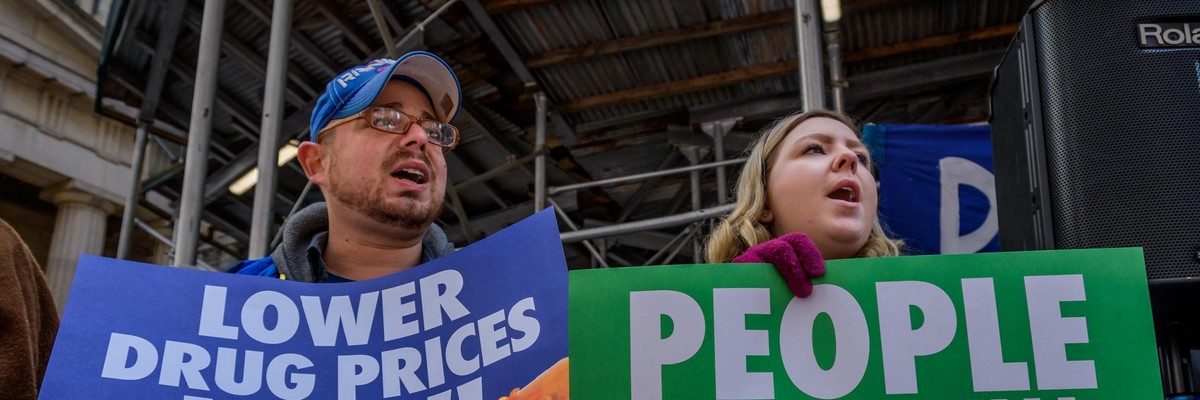A coalition of patient advocacy groups on Monday urged members of Congress to include bipartisan legislation in the year-end budget package that proponents say will lower prescription drug prices--in part by reforming a citizens' petition process often abused by pharmaceutical companies to delay approval of cheaper generic medications.
"Passing the bipartisan citizen petition bill would be a win-win for Congress."
"As Congress works toward finalizing an end-of-year budget package, we urge the chambers to include bipartisan legislation to address abuse of the Food and Drug Administration's (FDA) citizen petition process in order to reduce drug prices and save the government hundreds of millions of dollars by speeding generics to market to increase competition," the eight groups, led by Patients for Affordable Drugs NOW (P4ADNow), said in a letter to congressional leaders.
The letter asserts that S. 562, the Ensuring Timely Access to Generics Act, "strengthens the FDA's ability to reject citizen petitions if it believes the primary purpose of the petition is to delay approval of a generic competitor."
The bill's proponents say the proposed legislation will more effectively identify "sham" citizen petitions filed as a means of delaying FDA approval of generic drugs and biosimilars.
"Passing the bipartisan citizen petition bill would be a win-win for Congress--it boosts competition by decreasing barriers for cheaper generic drugs to come to market, driving down prices for patients, and saving the government hundreds of millions of dollars," P4ADNow founder David Mitchell said in a statement.
The P4ADNow letter continued:
Both the Trump and Biden administrations have identified submission of sham citizen petitions as a threat to timely approval of generics and competition. In 2018, Former FDA Commissioner Scott Gottlieb noted that manipulation of the process "can add to resource burdens on the generic drug review process and the FDA's regulatory decision making" and decrease the speed of the approval process. In its 2021 drug pricing competition plan, the Biden administration also said that legislative changes were needed to "make it harder for brand manufacturers to abuse the regulatory process to prevent the introduction of biosimilar and generic products" such as through manipulation of the citizen petition process.
A 2016 analysis by Michael Carrier and Carl Minniti published in the American University Law Review revealedthatbrand-name drug-makers filed 92% of all FDA citizen petitions between 2011 and 2015, with the agency rejecting 90% of them.
Carrier and Minniti concluded that "citizen petitions represent a hidden tool in [Big Pharma's] toolkit of entry-delaying activity, all to the detriment of consumers forced to pay high drug prices. And in defiance of Congress' attempt to limit abuse, citizen petitions play an increasingly important role in delaying generic competition."



